Andre Farrar, head of the RSPB’s media team, wrote this blog recently: What Did You Do in the Campaign for the Forest?
Save Our Woods did reply to Andre through Twitter (as their comments are switched off) and asked the RSPB what they did in the campaign. We’re yet to receive an answer, which is a real shame, as we are unaware of how they helped the public fight the save our forests campaign and would love to rectify this.
In frustration at being unable to comment on Mark Harper’s (the new RSPB conservation director) blog about the future of our forests, Rod Leslie sent SoW what he would have liked to comment, had he been allowed!
” Martin Harpers blog recognises the huge public feeling over forest sales – which developed while RSPB were sitting firmly on the fence, where they still seem to be.
What’s behind their continuing sniping at a silenced Forestry Commission ?
Certainly not the facts: Surely they should be holding FC up as an exemplar of how a Government organisation can really change ? FC operates on a different scale even to RSPB: its already restored as much ancient woodland as the Woodland Trust and has restored as much heathland as all the other land managers put together, including RSPB. The hotspot for Purple Emperor (see Mark Avery’s recent blog) is the FC Fermyn woods, part of the massive, 5,000 hectare Northemptonshire Ancient Woodlands project.
In the New Forest FC set new standards for public engagement with New Forest-New Future whilst carrying out one of England’s largest habitat restorations on one of its most important wildlife sites, including over 1,000 hectares of restored woodlands.
And the RSPB is so critical of FC managed SSSIs, 99% of which they have managed into favourable condition, best of any land manager. RSPB achieved a creditable 93%, much of the balance outside its control.
RSPB looks increasingly churlish in not recognising these achievements – and in not acknowledging what it already knows, that ancient woodland and heathland won’t be restored without a strong, well directed and funded FC. RSPB’s view looks increasingly narrow: what about carbon ? What about deforestation ? What about the huge problem of public concern over tree removal, which FC handles so much better than anyone else ? What happened to positive ideas like the Dutch style Forest & Wildlife service Mark Avery was promoting before he left RSPB ?
The panel is a great oportunity to look outwards and upwards – why can’t we move, not lose, the conifers ? Its time to look for new alliances, conservation and forestry together have the the potential to transform our English environment for the better.
So, come on RSPB, get back on the side of your public, give credit where its due and state clearly that FC are doing a great job and you are depending on them to do an even greater one. ”
Roderick Leslie Retired head of policy at the Forestry Commission, Rod worked for the FC for over 35 years. In his time as a forester, he not only worked in Field management & Conservation policy but was also the commission’s Private forestry & Environment officer for the South and West of England.
Rod is a keen ornithologist and expert on the critically endangered Nightjar. His book ‘Birds and Forestry‘ (co-authored with Mark Avery, RSPB Conservation director), is acclaimed as a step toward sustainable forestry planning. Tackling the issues between forestry and nature conservation.Rod is a founder member of Our Forests!













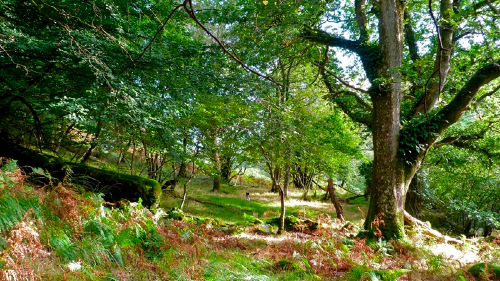
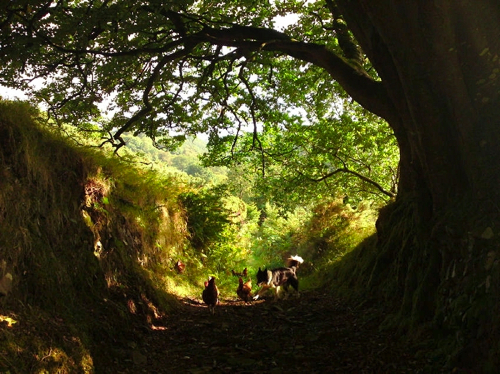
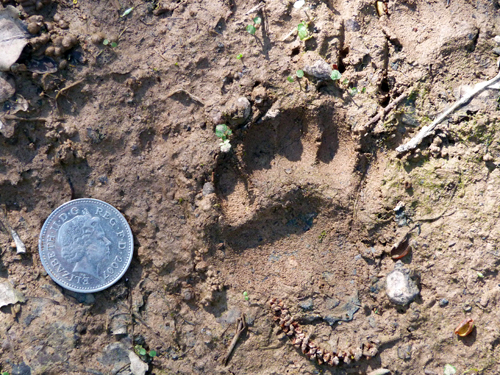

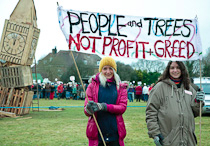


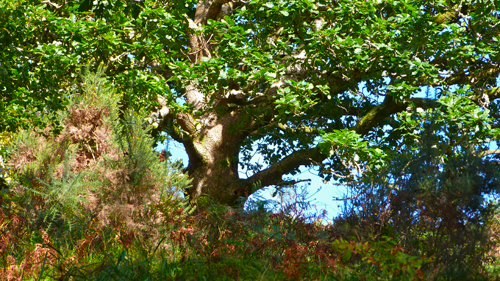

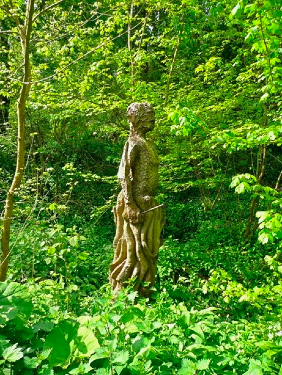




Considering the modern entity of the FC contains the vast majority of the greatest minds in modern forestry in the world, in particular its research department, it is simply criminal in a western democracy to witness continual sniping by many in the media and worse by those who have representation on the forestry panel, without an allowance for the FC to argue its case.
Many have stated that the PFE disposal consultation, subsequent revolt and now the forestry panel itself will go down in land management history. It will also go down in history, probably more so abroad where the FC has gained an unequalled status, that the FC were gentlemanly enough to stand back as told on their home turf and not interfere despite the greatest of provocation.
I am getting very angry at many of the soundbites of those who wish to jump on a bandwagon and prove themselves at a time needed for reflection. The New Forest Association ‘s letter to Defra is a classic case in point. It can be read here: http://www.newforestassociation.org/sell_off.html
There are many contradictions in this letter and I know of many people, including myself in the New Forest who want to distance themselves from the ill thought out ambitions contained within it. We face many risks, the greatest of which is ongoing financial assistance and to publish a utopian scenario with the belief that by removal of the Forestry Commission will accomplish this, is dangerous in the current political climate as it could well happen. There are many other flaws in this letter; describing huge swaths of forest as sterile in biodiversity, criticising the aesthetics in one sentence then mentioning the huge visitor numbers the Forest has, makes no sense. And lastly; who will now pay for and further decide what trees do not fit. I have heard so much talk of removing the ‘exotic’ conifers, although sudden oak death is now doing this very effectively for us, but little talk of trees which do not fit, yet have become a vital component of a sylvan English countryside, the Sweet Chestnut or Sycamore.
Our countryside is now at the hands of many charitable but poorly qualified people actually dictating future policy. The independent forestry panel methods are flawed and ignore strict rules in terms of accepting research through peer reviewed process in terms of tree and woodland management. Where are our great British foresters, we need them now?